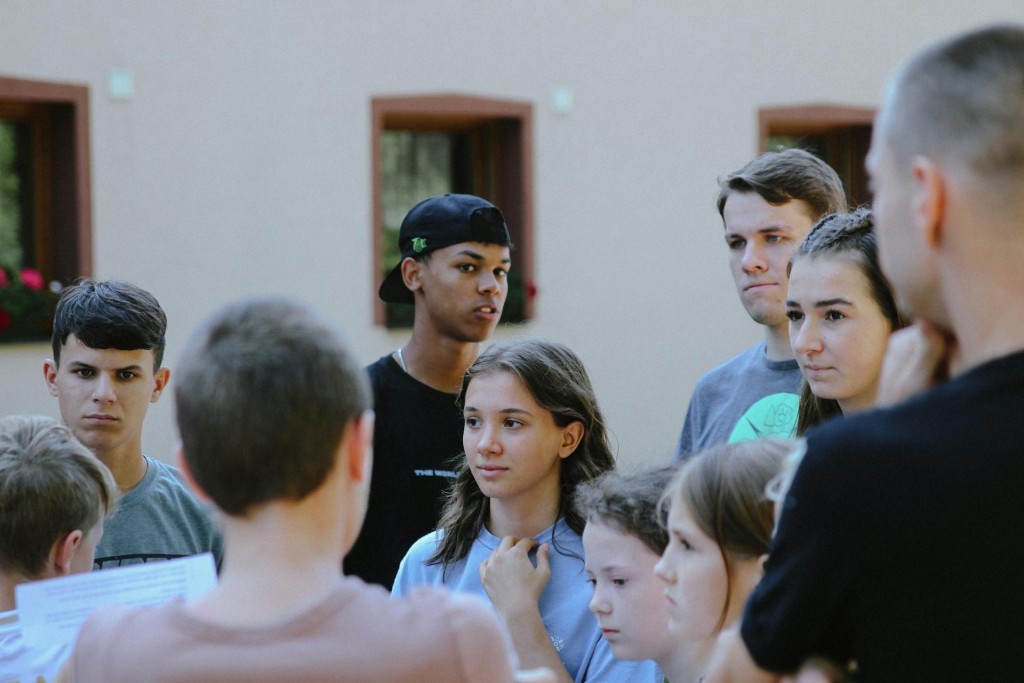26/06/2024
Youth educator networks have a positive impact on the fight against LGBTQIA-phobia
The results of a URV research project in collaboration with various European universities demonstrate the effectiveness of training and the support of these networks in creating more respectful and inclusive spaces

The results of a URV research project in collaboration with various European universities demonstrate the effectiveness of training and the support of these networks in creating more respectful and inclusive spaces
LGBTQIA-phobia is a social problem that threatens the quality of life and well-being of LGBTQIA+ people. Scientific evidence has shown the widespread presence of this form of violence and discrimination during adolescence and young adulthood, and this has a very negative impact on the lives of the victims. Studying the potential impact of networks of youth educators involved in the prevention of violence and the search for strategies to improve the circumstances of young LGBTQIA+ people has been the main objective of a study led by Carme Garcia Yeste, a researcher at the Department of Pedagogy of the Universitat Rovira i Virgili (URV). The results have demonstrated the significant impact that these networks can have on reducing violence and discrimination based on sexual orientation, gender identity or gender expression in youth environments.
The presence of traditional dominant masculinities together with a lack of quality training create an important barrier for youth workers when it comes to fighting against sexual and gender discrimination. The study has shown that the motivation and potential of this group of professionals and the support of the network are significant strengths when it comes to creating more respectful and inclusive spaces.
To reach these conclusions, the research team conducted 160 questionnaires and also carried out interviews with participants in various youth educator training courses that were implemented in five European countries: Spain, Cyprus, Denmark, Belgium and Ireland. The data were collected as part of a transnational project funded by the European Commission’s Rights, Equality and Citizenship programme.
The questionnaires were carried out before and after the network’s training and a total of 160 responses were collected to determine the knowledge, satisfaction and applicability of the training received by the participants. The questionnaires included questions in different formats on topics such as LGBTQIA+ conceptualisation, digital violence and bystander intervention in the face of violence. Interviews were also held with youth educators from the different participating countries, who were selected for their commitment and active participation in the network.

The answers obtained from the interviews helped the research team to delve deeper into the participants’ experiences and to identify the impact that the training had had on their personal and professional actions in terms of preventing and intervening in cases of violence and discrimination.
Finally, an advisory committee made up of LGBTQIA+ young people and professionals from different parts of Europe monitored the results obtained throughout the project to ensure that the needs of the community were reflected in all phases of the research.
The results of the study show that the implementation of youth educator networks provides effective tools for combating LGBTQIA-phobia, and highlights the importance of quality training and mutual support among professionals. Participants demonstrated a significant increase in their knowledge and confidence to act as active agents against LGBTQIA-phobic violence.
According to Carme Garcia-Yeste, co-author of the study and researcher at the Department of Pedagogy at Rovira i Virgili University, “this work shows that youth educator networks can play a crucial role in creating safer and more inclusive youth environments. It is essential to provide training based on scientific evidence and encourage network support to achieve a positive social impact”.
The team involved in this research recommends continuing to promote similar initiatives that combine quality training with network support in order to improve the situation of LGBTQIA+ young people and eradicate discrimination and violence in youth spaces.
The study, published in the scientific journal Sexuality Research and Social Policy, has been carried out in collaboration with several European universities.
De Witte, K., Garcia-Yeste, C., Gallardo-Nieto, E. et al. Implementing Youth Worker Networks to Achieve Social Impact in the Eradication of LGBTQIA-Phobia. Sex Res Soc Policy (2024).. https://doi.org/10.1007/s13178-023-00926-9
More news about: LGTBIQ+
